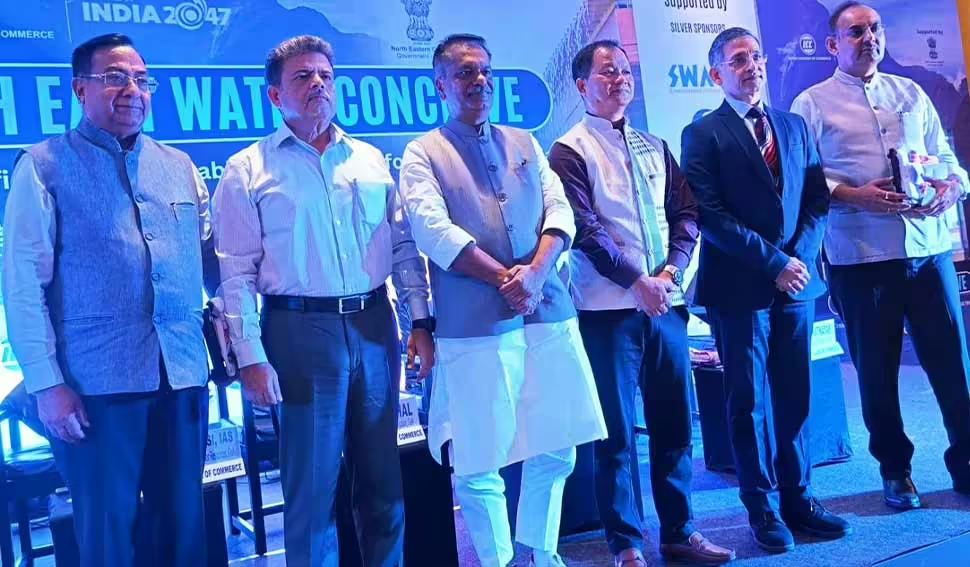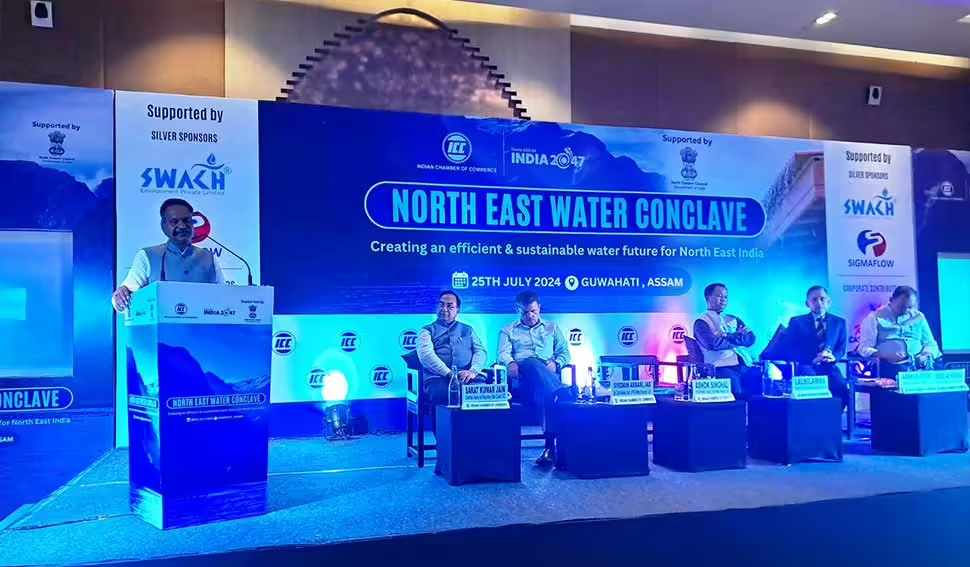Indian Chamber of Commerce organizes Water Management Conclave

A water management conclave was organized by the Indian Chamber of Commerce (ICC) in a city hotel here on Thursday.
Speaking on the occasion, Assam urban affairs minister Ashok Singhal talked about the numerous initiatives taken by the Assam government to solve the water crisis in various cities and towns of the state.
Singhal said the state is blessed with abundant water resources and can easily be supplied with proper technology and public-private initiatives.
Singhal stated that the people of the Northeast have the highest per capita water resources in the country. “But we face some problems in the dry season. Our forefathers lived with nature for their survival but now we human beings want nature to live with us and want to manage it,” he said.
“This is the root cause of all the problems we are facing like scarcity of groundwater, flood, erosion etc,” he added.
Mizoram minister of state for rural development, horticulture and public health engineering, Lalnilawma, who also attended the conclave explained the numerous challenges faced by the hilly state of Mizoram and government initiatives to mitigate them.
He said that the situation in his state is alarming as the rivers are drying up fast due to deforestation, pollution etc.
“The right approach that we need to take now is integrated water management with proper use,” he added.
Assam’s additional chief secretary (public health engineering & water resources) Syedain Abbasi, delved deep into the matter of using water resources for various purposes like drinking water management, irrigation and containment of flood.
He urged for more technologies and investment to tap the immense water resources in the state. Abbasi stated that the issues in the Northeast are different than the rest of the country. Due to very high rainfall and siltation the river Brahmaputra causes floods every year. Over the years of last 50 years, the area of Brahmaputra has increased by 2000 sq km. The need of the hour is proper planning for water storage at a large scale.

In his address, ICC National Expert Committee on Water Management chairman Aankur Patni stated that As per the World Bank, In most regions of the world, over 70 per cent of freshwater is used for agriculture. As NER is waking up to the prospects of commercial organic farming, biofuel cultivation, heightened demand for tea and horti products, rubber, bamboo and jute the need for sustainable irrigation practises and water harvesting is also rising. NER is seeing rapid industrialization and urbanization, with the growing emergence of its suitable location as a logistics and transhipment hub en route to ASEAN and Bangladesh. Hitech industries like Semiconductor units are coming up in Assam along with its dominance as a hydrocarbon hub. This calls for state-of-the-art sustainable water management practices. Technology-based solutions are also called for the arsenic-affected rural areas of the region.
Earlier, in his welcome address, ICC’s Assam and Meghalaya State Council chairman Sarat Kumar Jain said that water is the source of life. All ancient civilizations grew around sustainable water resources, which helped them to survive and thrive. Water is crucial for food security, trade and transportation, industrialization and the ecological balance of our planet Earth.
Jain also stated that to set the context for water as a life force in today’s world, we can refer to the World Bank data: “Almost fifty per cent of the developing world’s population – 2.5 billion people – lack improved sanitation facilities, and almost 1 billion people still use unsafe drinking water sources, and even those with access often receive unsafe and inadequate service.”

Leave a Reply